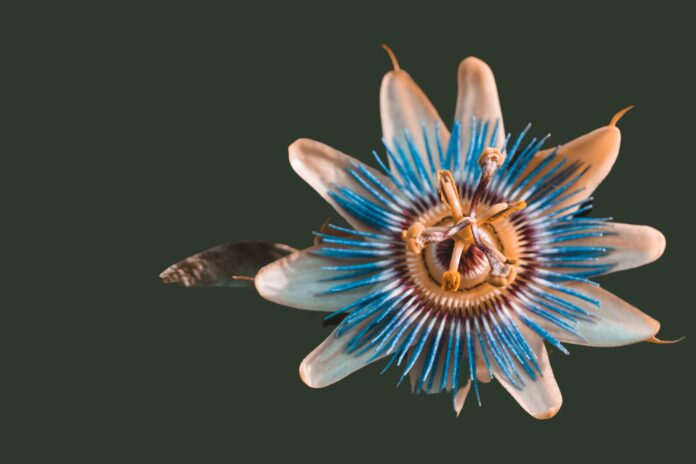The roles of bees in the upkeep of our planet simply can’t be overstated. These little guys pollinate plants, provide food for animals, and produce honey that we can eat. Bees play a vital role in our ecosystem and without them, life would be very different. It might even be non-existent, quite frankly.
Bees are not only essential to us as humans but to the whole earth and all its inhabitants. Though many of us are most concerned about bees when they’re buzzing about our barbecues, it is, conversely, their dwindling presence we should be worried about, rather than them showing up to our summer garden parties uninvited.
If you’re keen to learn more, then here are 5 facts about the importance of bees to our planet.
BEES ARE RESPONSIBLE FOR POLLINATING ABOUT ONE-THIRD OF THE FOOD WE EAT
During their lifetime, a bee may visit as many as 80 different flower species and collect nectar from each to make honey or gather pollen grains to feed baby bees. Yep, not only do they look adorable, but they’re great parents, too!
These incredible, intellectual creatures use a combination of sight, scent, and chemical signals to identify flowers’ locations, possessing a very special type of colour vision that can see ultraviolet patterns on flowers where nectar is often located at depths inaccessible to most insects.
Because of these unique abilities, more than 100 crop species worldwide, including apples, almonds, onions, carrots, broccoli and squash, are pollinated by bees, accounting for a whopping $30 billion a year in crops. To put it bluntly, if bees went extinct, we would struggle to feed the global population.
Bees also contribute to plant life by transferring pollen among plants which helps them reproduce—but they don’t just do this for one type of flower or plant; in fact, many types benefit from their work!
THE BEE POPULATION IS DECLINING AT AN ALARMING RATE
The bee population is declining at an alarming rate due to pesticides killing them off, habitat loss (such as deforestation) destroying their homes, and climate change making it difficult for them to live comfortably in different areas.
What’s more, increasing urbanisation is changing environments that used to be safe havens for bees into something less hospitable.
On a more micro level, bees are in increasing danger as they are consistently attacked by the Varroa destructor mite, which originated from Asia and is spread through honey bees – not to be mixed up with mining bees, incidentally, who make their nests underground. Nonetheless, they are equally important to our planet, just like all other types of bees.
It’s been estimated by some experts that if no action is taken against this problem there could be up to 40% fewer bees in the world by 2020. And with their decline, so too will the world’s abundance of food crops drop, too.
To enact change, it’s essential we take a holistic approach to our planet, making efforts to tread more lightly and demanding that major corporations do the same. Consumers can endeavour to only use companies who don’t use dangerous pesticides that kill these amazing creatures off.
You can also make moves to ensure your garden is as wildlife friendly as possible. Read more on how to do just that – including how to build a hotel for bees in your garden – here.
HONEY HAS BEEN USED A NATURAL MEDICINE FOR CENTURIES
Bees fly to and from their hives with pollen about 40 miles per day, which is then used by other bees and stored as honey. Amazingly, honey isn’t only a delicious natural sweetener; it’s also been used as a medicine for centuries.
It’s able to sterilise and reduce the size of wounds, promote healing and even reduce pain, all because of its antibacterial properties. Owing to these antibacterial and antiseptic qualities, honey is often used as part of organic, all natural skincare routines, too.
BEES LEND A HELPING HAND TO A WHOLE HOST OF PLANTS & ANIMALS
Bees also provide help to the environment by distributing seeds. In addition to that, they produce wax that can be collected from hives or sometimes found on logs where people find them nesting.
Bees produce honey so that they can eat when flowers aren’t blooming – a period of time known as “Winter Quarters.” Pollen from plants during these periods becomes scarce due to a lack of sunlight or rain. Bees will use up all their stores of nectar if there isn’t enough pollen available at the hive. This means no more royal jelly produced and no new bee larvae being born, leading to eventual colony collapse!
Bees don’t just affect farms though; they provide much-needed services that improve our homes as well as those of other animals such as birds, bats, butterflies, and hummingbirds that eat their nectar, particularly during these winter hibernation periods. These insects offer us shelter from rainstorms when trees lose their leaves in autumn, too!
Without bees, there would likely be significantly more pests, disease, and even starvation. Bees not only pollinate food plants but they also pollinate crops that provide feed for livestock.
BEES HELP MAKE SO MANY OF THE PRODUCTS WE USE EVERY DAY
Bees also produce wax that is used by humans in candles, crayons, furniture polish, and other products. They are the source of honey, beeswax, propolis (a natural antibiotic), royal jelly (an excellent supplement for the elderly), bee pollen, and many other products.
THE BOTTOM LINE
The bees have been a part of our lives (or rather, we’ve been a part of theirs) for over 120 million years. They are responsible for pollinating about one-third of the food we eat and produce honey which has many benefits, such as being used as medicine since ancient times and is also being a natural sweetener. Take care of them before they’re gone…the results of which would be catastrophic.
If you’re keen to make a difference, check out these 8 IDEAL plants that will make your garden more bee friendly.





